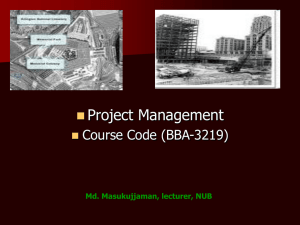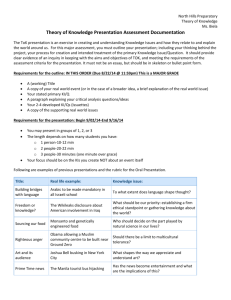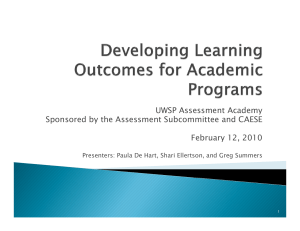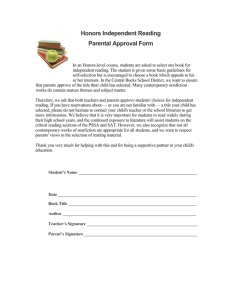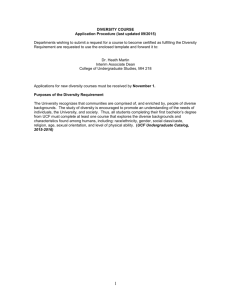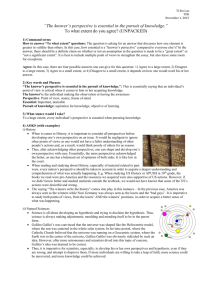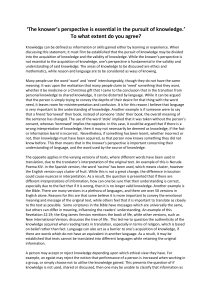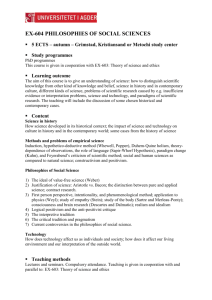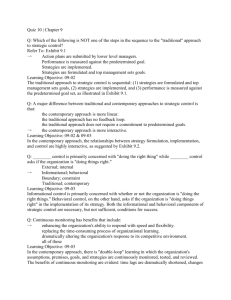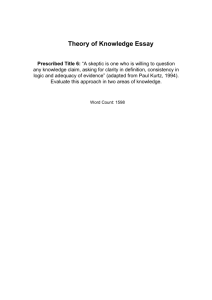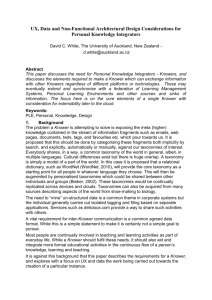ToK Presentation Topics
advertisement
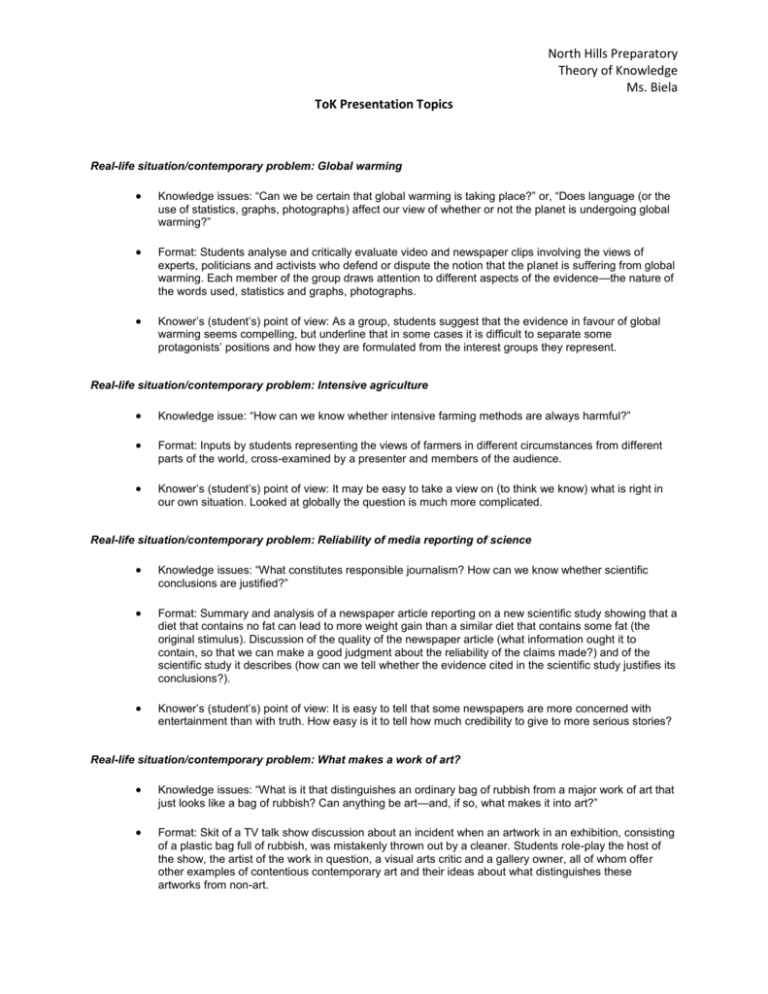
North Hills Preparatory Theory of Knowledge Ms. Biela ToK Presentation Topics Real-life situation/contemporary problem: Global warming Knowledge issues: “Can we be certain that global warming is taking place?” or, “Does language (or the use of statistics, graphs, photographs) affect our view of whether or not the planet is undergoing global warming?” Format: Students analyse and critically evaluate video and newspaper clips involving the views of experts, politicians and activists who defend or dispute the notion that the planet is suffering from global warming. Each member of the group draws attention to different aspects of the evidence—the nature of the words used, statistics and graphs, photographs. Knower’s (student’s) point of view: As a group, students suggest that the evidence in favour of global warming seems compelling, but underline that in some cases it is difficult to separate some protagonists’ positions and how they are formulated from the interest groups they represent. Real-life situation/contemporary problem: Intensive agriculture Knowledge issue: “How can we know whether intensive farming methods are always harmful?” Format: Inputs by students representing the views of farmers in different circumstances from different parts of the world, cross-examined by a presenter and members of the audience. Knower’s (student’s) point of view: It may be easy to take a view on (to think we know) what is right in our own situation. Looked at globally the question is much more complicated. Real-life situation/contemporary problem: Reliability of media reporting of science Knowledge issues: “What constitutes responsible journalism? How can we know whether scientific conclusions are justified?” Format: Summary and analysis of a newspaper article reporting on a new scientific study showing that a diet that contains no fat can lead to more weight gain than a similar diet that contains some fat (the original stimulus). Discussion of the quality of the newspaper article (what information ought it to contain, so that we can make a good judgment about the reliability of the claims made?) and of the scientific study it describes (how can we tell whether the evidence cited in the scientific study justifies its conclusions?). Knower’s (student’s) point of view: It is easy to tell that some newspapers are more concerned with entertainment than with truth. How easy is it to tell how much credibility to give to more serious stories? Real-life situation/contemporary problem: What makes a work of art? Knowledge issues: “What is it that distinguishes an ordinary bag of rubbish from a major work of art that just looks like a bag of rubbish? Can anything be art—and, if so, what makes it into art?” Format: Skit of a TV talk show discussion about an incident when an artwork in an exhibition, consisting of a plastic bag full of rubbish, was mistakenly thrown out by a cleaner. Students role-play the host of the show, the artist of the work in question, a visual arts critic and a gallery owner, all of whom offer other examples of contentious contemporary art and their ideas about what distinguishes these artworks from non-art. North Hills Preparatory Theory of Knowledge Ms. Biela Knower’s (student’s) point of view: Why are people prepared to dismiss contemporary art without understanding much about it, while often blindly believing scientific claims, however outlandish and improbable? Real-life situation/contemporary problem: Demonstrations in China against the issue of a new history textbook in Japan Knowledge issues: Who should decide, and on what grounds, what history should be taught in schools? What part does the notion of historical truth play here? Format: Arguments for and against the Chinese attempt to tell the Japanese what they should teach about the actions of the Japanese army in China during the second world war. Should other countries be able to have a say in what the Chinese teach their children? What, in general terms, should determine a history curriculum? Knower’s (student’s) point of view: Is history too important to be left to historians? Real-life situation/contemporary problem: What evidence is there about how dinosaurs looked and behaved? Knowledge issues: Are the methods of paleontology more like a science such as physics, or more like history? Format: Showing and discussion of a clip from the TV documentary Walking with Dinosaurs on how dinosaurs lived, showing a detailed scene from the life of a particular dinosaur, with a commentary presented as if this were a real scene. Knower’s (student’s) point of view: How far is it legitimate for TV programmes to go, to make their subject matter entertaining?

